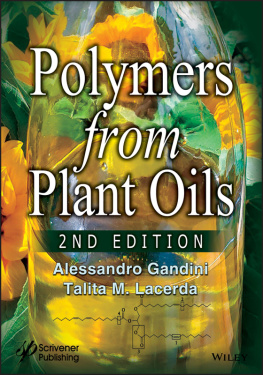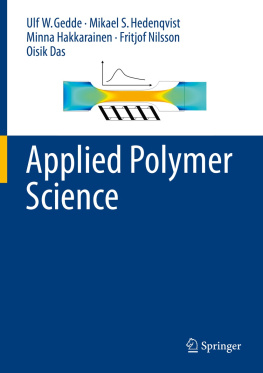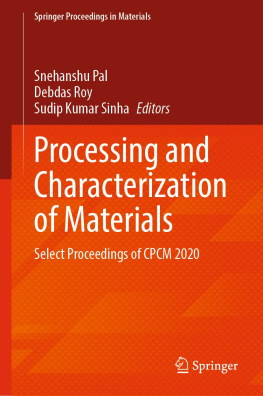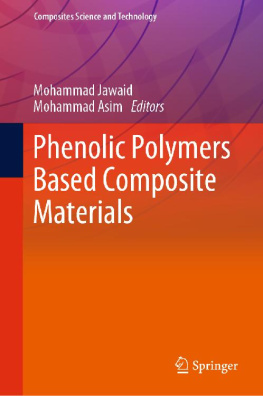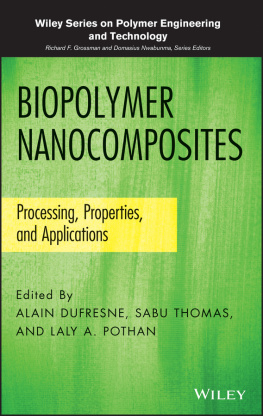
Contents
Guide
List of Illustrations
- Chapter 1
- Chapter 2
- Chapter 3
- Chapter 4
- Chapter 5
- Chapter 6
- Chapter 7
List of Tables
- Chapter 1
Pages
Scrivener Publishing
100 Cummings Center, Suite 541J
Beverly, MA 01915-6106
Publishers at Scrivener
Martin Scrivener ()
Phillip Carmical ()
Polymers from Plant Oils
2nd Edition
Alessandro Gandini
Talita M. Lacerda
This edition first published 2019 by John Wiley & Sons, Inc., 111 River Street, Hoboken, NJ 07030, USA and Scrivener Publishing LLC, 100 Cummings Center, Suite 541J, Beverly, MA 01915, USA
2019 Scrivener Publishing LLC
For more information about Scrivener publications please visit www.scrivenerpublishing.com.
All rights reserved No part of this publication may be reproduced, stored in a retrieval system, or transmitted, in any form or by any means, electronic, mechanical, photocopying, recording, or otherwise, except as permitted by law Advice on how to obtain permission to reuse material from this title is available at http://www.wiley.com/go/permissions.
Wiley Global Headquarters
111 River Street, Hoboken, NJ 07030, USA
For details of our global editorial offices, customer services, and more information about Wiley products visit us at www.wiley.com.
Limit of Liability/Disclaimer of Warranty
While the publisher and authors have used their best efforts in preparing this work, they make no representations or warranties with respect to the accuracy or completeness of the contents of this work and specifically disclaim all warranties, including without limitation any implied warranties of merchantability or fitness for a particular purpose No warranty may be created or extended by sales representatives, written sales materials, or promotional statements for this work The fact that an organization, website, or product is referred to in this work as a citation and/or potential source of further information does not mean that the publisher and authors endorse the information or services the organization, website, or product may provide or recommendations it may make This work is sold with the understanding that the publisher is not engaged in rendering professional services The advice and strategies contained herein may not be suitable for your situation You should consult with a specialist where appropriate Neither the publisher nor authors shall be liable for any loss of profit or any other commercial damages, including but not limited to special, incidental, consequential, or other damages Further, readers should be aware that websites listed in this work may have changed or disappeared between when this work was written and when it is read.
Library of Congress Cataloging-in-Publication Data
Names: Gandini, Alessandro, author. | Lacerda, Talita Martins, author.
Title: Polymers from plant oils / Alessandro Gandini and Talita M. Lacerda.
Description: 2nd edition. | Hoboken, NJ : John Wiley & Sons, Inc., 2018. | Includes bibliographical references and index. |
Identifiers: LCCN 2018044842 (print) | LCCN 2018046235 (ebook) | ISBN 9781119555827 (ePub) | ISBN 9781119555339 (ePDF) | ISBN 9781119555797 (hardcover)
Subjects: LCSH: Vegetable oilsIndustrial applications. | Plant polymers. | Polymerization. | Biomass chemicals. | Renewable natural resources.
Classification: LCC TP680 (ebook) | LCC TP680 .G28 2018 (print) | DDC 665.3dc23 LC record available at https://lccn.loc.gov/2018044842
Preface to First Edition
Vegetable (or plant) oils, shown here as plant triglycerides, constitute one of the most abundant variety of renewable resources on our planet. They have been exploited by humans for millennia for three major purposes: food and feed, energy sources and precursors to useful products and materials. Ancient utilisations and applications (empirical by definition) contributed to ensure: daily sustenance for people and animals; comfort through heating and illumination; development of protective, writing and artistic coatings in the form of film-forming materials that dried in air. They were then adopted as pristine natural compounds, though in some instances other components were mixed with them, as in the case of inks and lacquers. Simple chemical transformations carried out empirically were also developed, as in the manufacture of soaps simulating the process applied to animal fats.
Unraveling of their chemical structure, and hence understanding of their reactivity, favoured more rational processing and widened the range of applications throughout the twentieth century. Another more important revolution has begun at the start of the third millennium with expansion of the research/development of biofuels and macromolecular materials.
This book is devoted exclusively to the latter realm, with particular emphasis on recent trends, progress, achievements and perspectives, with broad treatment of the subject, including inks, paints and coatings, in addition to the more conventional bulk thermoplastic and thermosetting polymers.
In the field of film-forming materials, use of alkyd resins incorporating plant oils or their derivatives has been a standard practice for a century, but no major qualitative advance was introduced until recently. The same applies for bulk polymers based on vegetable oils, of which linoleum (first commercialised in the middle of the nineteenth century) was for a long time the only important representative of these materials. Nylon 11 (commercialised under the name of Rilsan based on castor oil as a precursor) has been an important addition to this small family from the 1950s onwards. In other words, vegetable oils represented a very modest presence as basic constituents of macromolecular materials up to about a decade ago, but the situation has evolved radically since then.
The purpose of this book is to highlight this impressive and promising ongoing trend, which is also occurring in all other areas of the novel burgeoning domain of polymers from renewable resources.
We wish to thank most heartedly Joan Gandini for her constant help in improving the language and style of the manuscript. The authors kindly acknowledge FAPESP for T.M.L.s post-doctoral fellowship (2012/00124-9) and CNPq for A.Gs visiting professorship (Science Without Borders programme, PVE 401656/2013-6).
February 2015
Preface to the Second Edition
The publishers of the first edition of this book (2015), Smithers Rapra, relinquished their copyright to the authors who prepared the present second edition for publication under the auspices of Scrivener Publishing. There are no qualitative changes in the contents of this edition with respect to the first, which we still considered quite appropriate, whereas our attention focused on bringing up to date a number of issues related to recent relevant facts and important contributions. We feel that the topic of the book has maintained a high level of interest, as judged by the continuing flow of publications and new materials being developed by both academic and industrial research activities throughout the world. We trust therefore that the message contained in the original preface remains fully justified.
The authors kindly acknowledge FAPESP for financial support (2017/16062-6).
Next page
